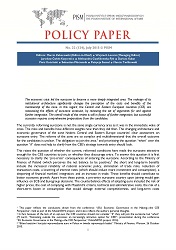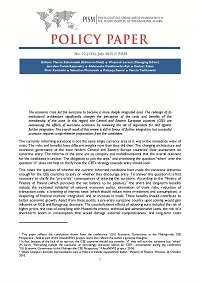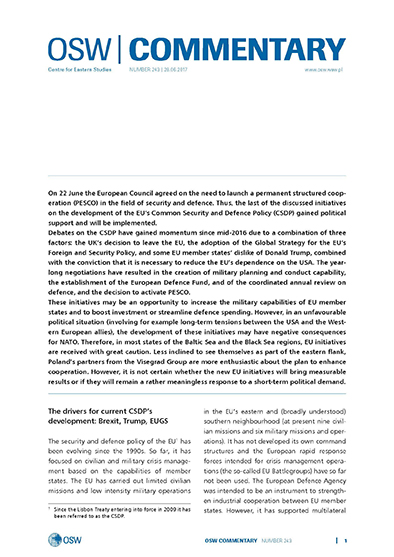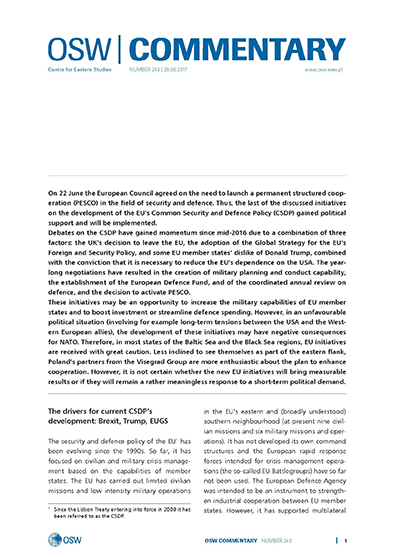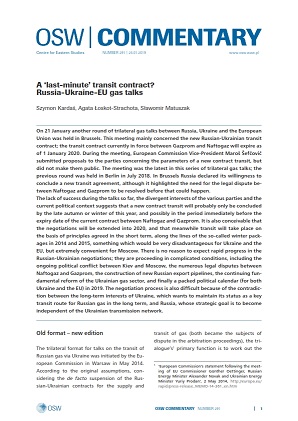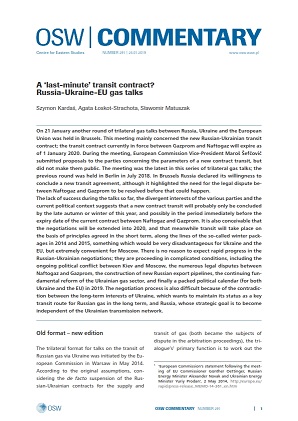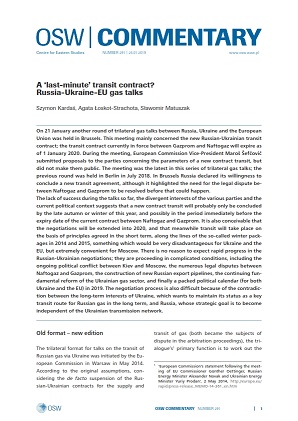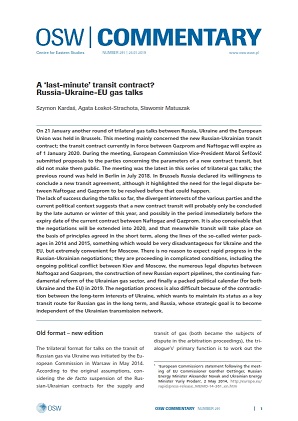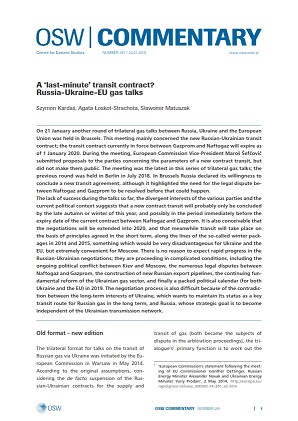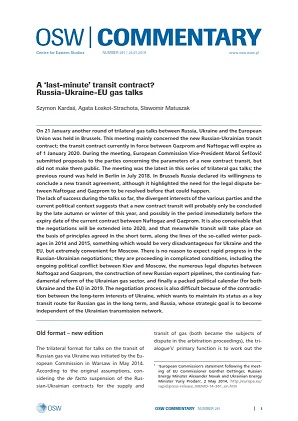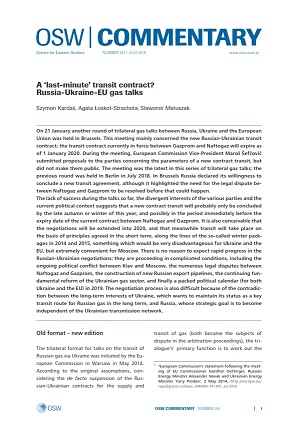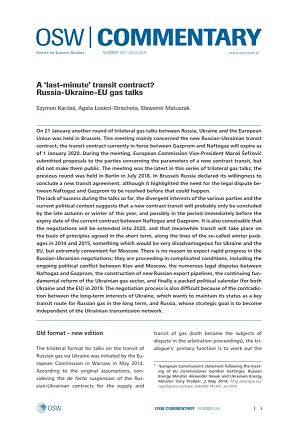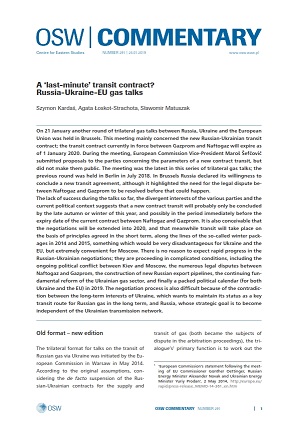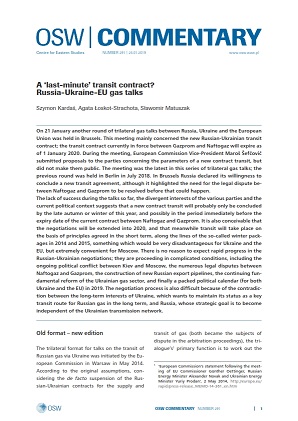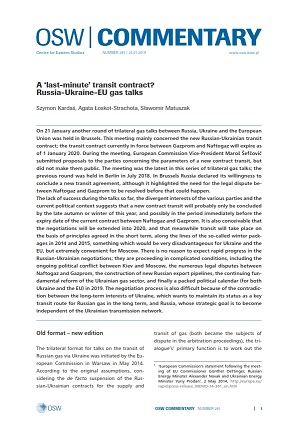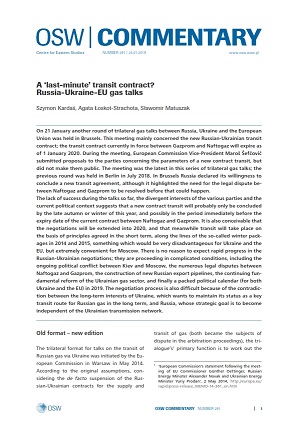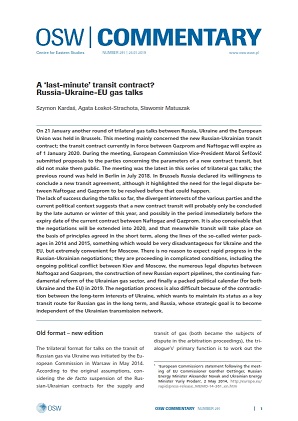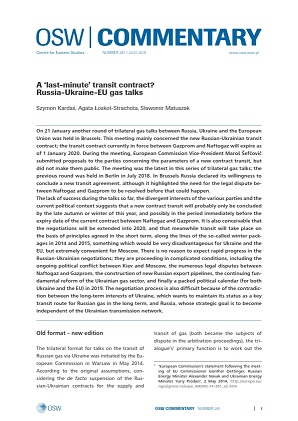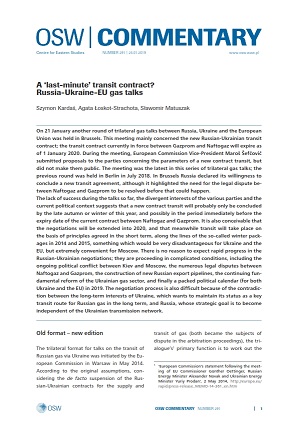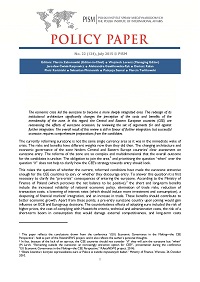
№134: Azerbaijan’s Risky Game between Russia and the West
Azerbaijan recently had to face a wave of criticism from the European institutions (the OSCE and theEuropean Parliament) due to its government’s undemocratic practices. In response, Baku accused itsEuropean partners of Islamophobia and declared the suspension of parliamentary cooperation in theframework of the EU’s Euronest. The Azerbaijani ruling elite also blames the West of supporting a“fifth column” in Azerbaijan (meaning civil society organisations) as well as of giving political support toits arch-enemy Armenia in the Nagorno-Karabakh conflict. At the same time authorities in Baku aredisplaying their developing political partnership with Russia. This paper examines the consequences ofthe crisis in relations between the EU and Azerbaijan and Azerbaijani-Russian rapprochement for theprospects for EU-Azerbaijan energy projects and regional security in the South Caucasus.
More...
